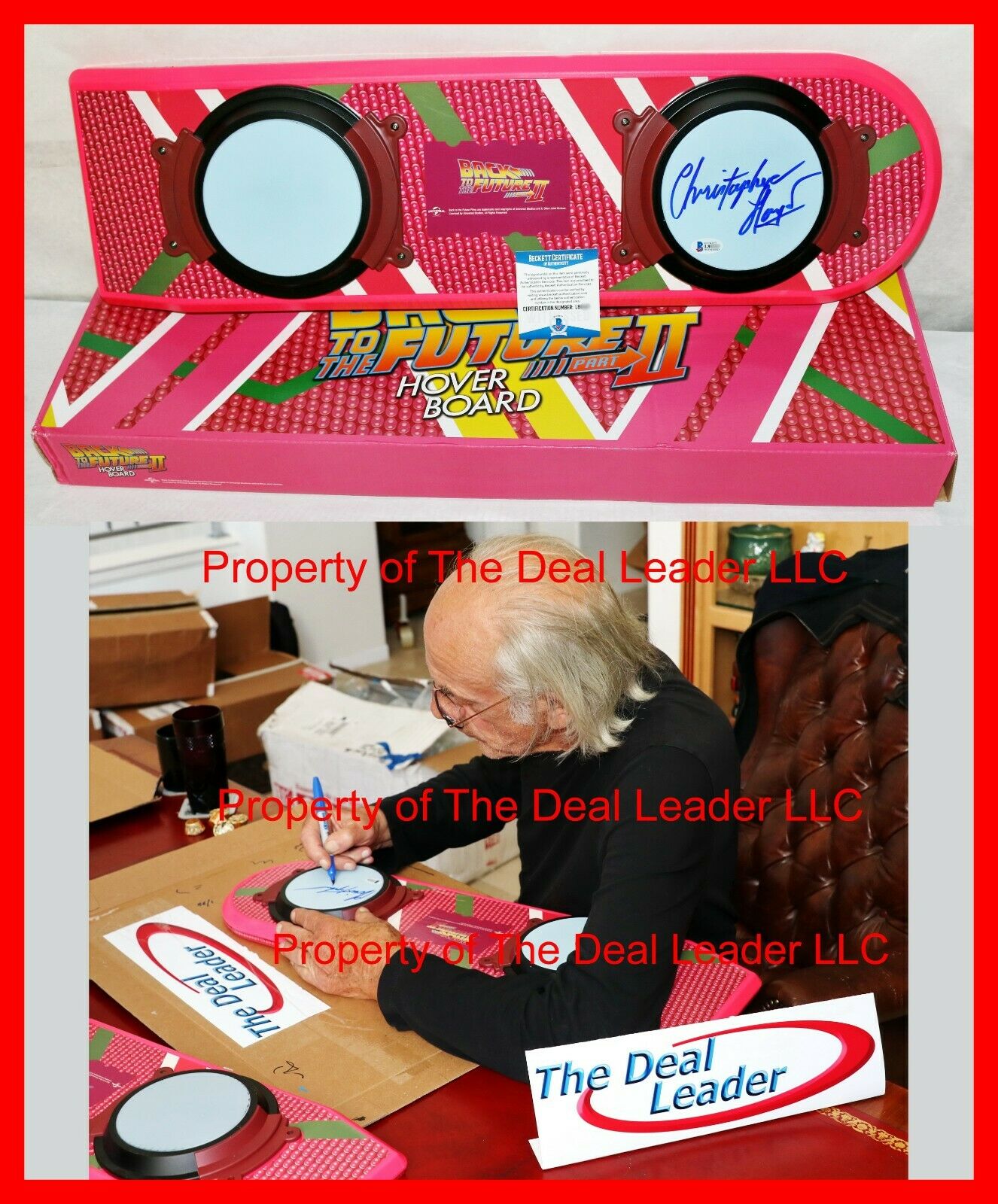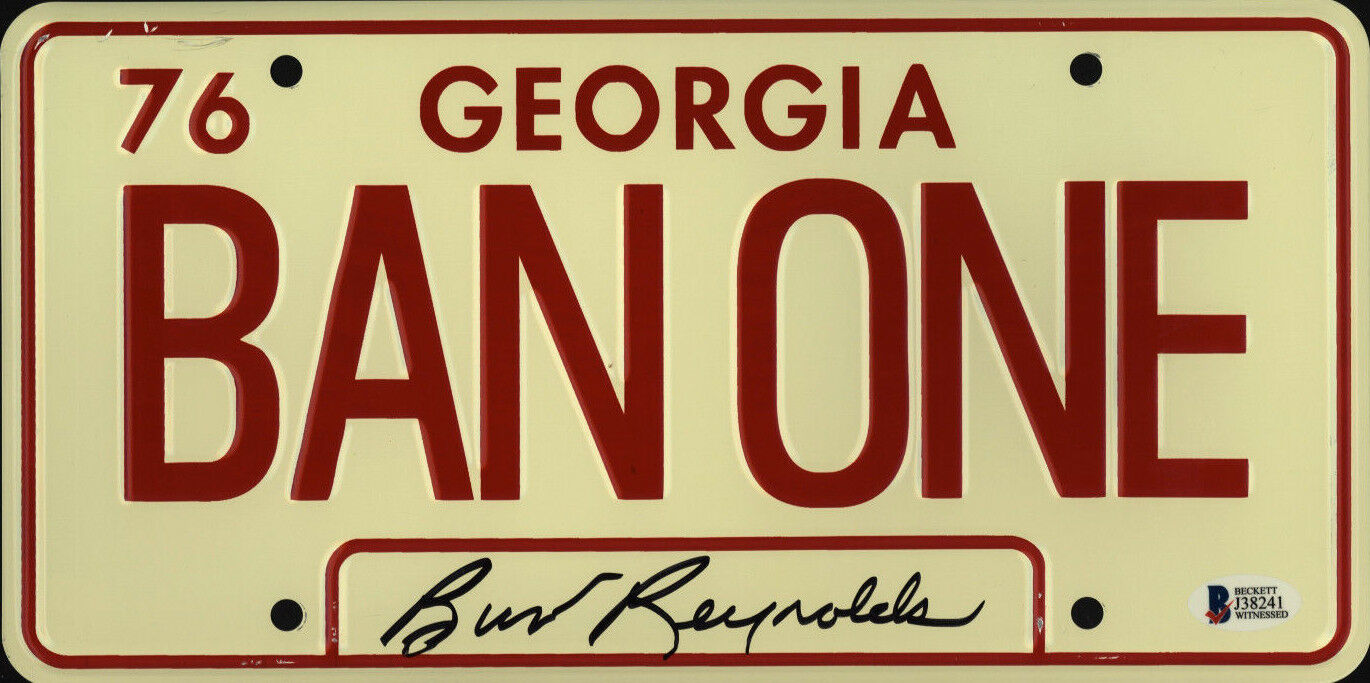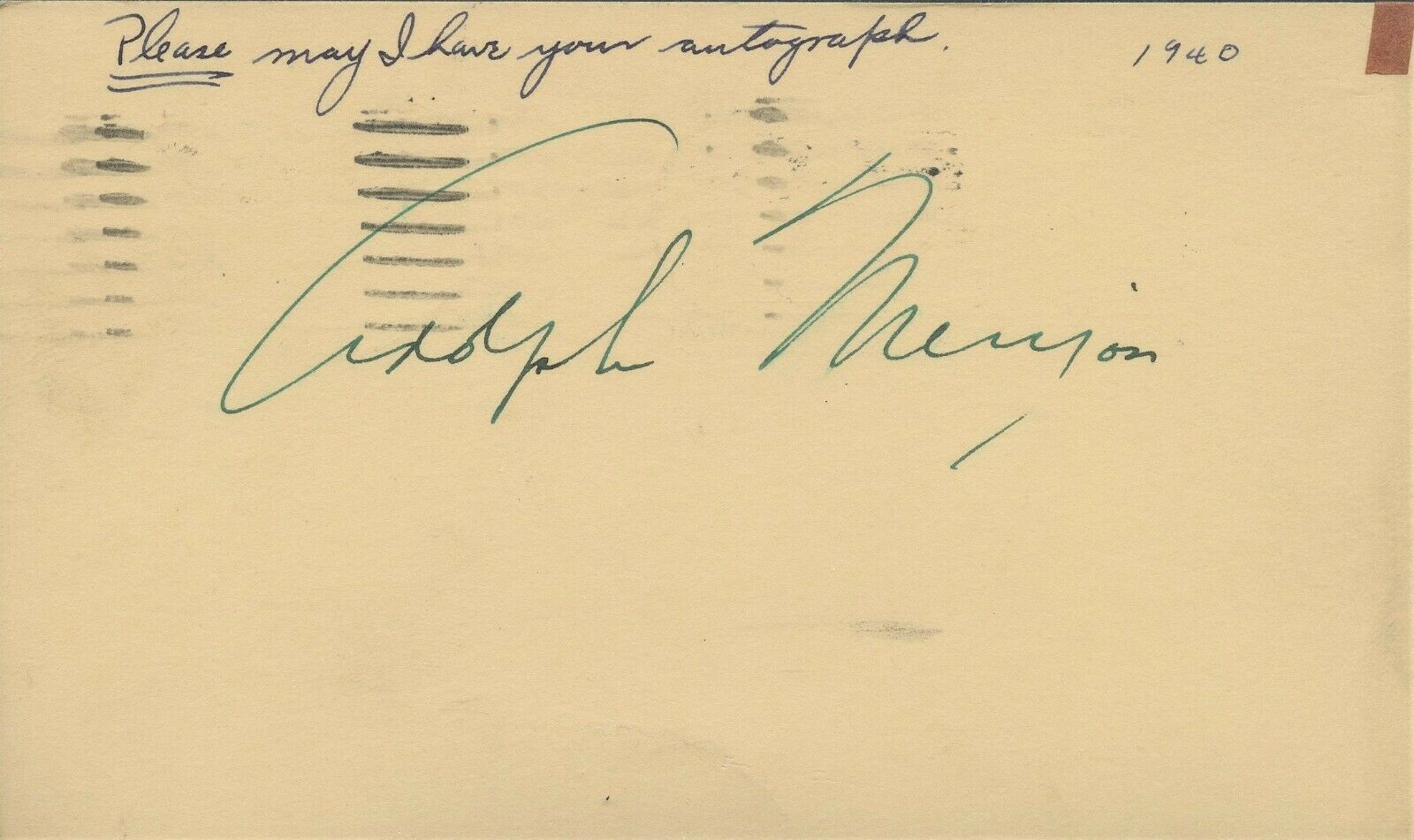-40%
YIP HARBURG Lyricist autographed note signed re OVER THE RAINBOW & H. Arlen
$ 380.16
- Description
- Size Guide
Description
Rare autographed note signed on the bottom of an octavo tls to the legendary lyricist from a collector requesting a musical quotation of “Somewhere Over the Rainbow” from the “Wizard of Oz”, March 7, 1978. Harburg writes a note back to the collector at the base of the page as was his wont to do. He states the proper name of the song in his response, “Over the Rainbow”. With the letter, we offer a 1972 glossy 8” x 10” photograph of the lyricist, along with the first edition sheet music of “Over the Rainbow” as described by our late friend, Jim Fuld in his The Book of World Famous Music - Classical, Popular and Folk, Dover, New York - page 418, Leo Feist, Inc, 1939, plate 7067-4, with the “Legion Airs” advertisement in the center and the 5 “Wizard of Oz” songs on the back cover.Harburg writes:
Dear Lillian S -
Thanks for the loving words - why don’t you ask Harold Arlen for the notes of “Over the Rainbow”, they belong to him.
All the best,
E Y Harburg
Harburg (1896-1981) was one of the years 1895-96 born gang of legendary and highly successful Broadway and film lyricists which also included Ira Gershwin, Ted Koehler, Oscar Hammerstein, Lorenz Hart, Howard Dietz, Harold Ruby and Irving Caesar. Harburg did not start out to be a lyricist. His best friend and high
school classmate Ira Gershwin began their adventure in writing lyrics together when they were high school classmates. When Harburg’s electrical supply business failed in 1929 due to the Depression, Gershwin helped find him work with his friend, composer Jay Gorney and they collaborated on the Broadway
variety show, the 1929 “Earl Carrol’s Sketchbook” in 1929 as co-composers and Harburg wrote the lyrics. Harold Arlen and Harburg first worked together in 1930, on another Carrol variety show, “Earl Carrol Vanities”, though Gorney and Harburg worked together and Arlen worked with his frequent lyricist of the time,
Ted Koehler. Their meeting was fortuitous as, Arlen was asked to compose a new Broadway musical and invited Harburg to write the lyrics for the “You Said It”, which opened in 1931 and ran seven months. They then worked together for the 1932 variety show, “Americana” then in it’s third season and updated annually.
In that show, the Harburg-Gormley Depression hit “Brother Can You Spare A Dime” debuted and soon was a huge hit on its’ own. As Arlen was still collaborating regularly with Koehler, Harburg began to collaborate regularly with Vernon Duke in 1932. Their first joint hit, “April in Paris” was written for the Broadway show,
“Walk A Little Faster” that year.
In 1934, Ira Gershwin, Harburg and Arlen collaborated on the Broadway show, “Life Begins at 8:40” which ran for 237 performances, a good success at the time. Both Harburg and Harold Arlen moved to California in 1935 to write music for films, as that industry was booming, whilst The Depression was hurting Broadway. Yarburg was signed by Goldwyn Brothers to supply lyrics for various film musicals and began working more closely with Vernon Duke. Though, in 1937 Harburg and Arlen collaborated on the anti-war Broadway musical “Hooray for What” which included the song “Down With Love”, which became a hit on its’ own. July, 1938 was the single most important moment of the composer and lyricist as Metro-Goldwyn-Mayer contracted the then Arlen and Harburg to supply original songs for their upcoming film, “The Wizard of Oz”. At the time, the pair were still considered newcomers to Hollywood. The contract was for fourteen weeks of work and a payment of ,000. Each and every bit of music in the musical film was written by Arlen with Harburg supplying the lyrics. Both had worked over time with two of the male leads on Broadway, Ray Bolger and Burt Lahr and therefore knew their vocal limitations. Harburg also, though uncredited for it wrote significantly and edited the script. When Arlen and Harburg were done with their work, it was decided there was not a ballad for Judy Garland to sing in the first Kansas scene, which immediately cause writers’ block. Arlen in a moment of inspiration asked his wife Anya to drive him to Grauman’s Chinese Theatre to see a film. When they reached Schwab’s Drug Store, he had her pull over as the song came to him, “Over the Rainbow” and he jotted down on a slip of manuscript paper the theme. He then took the jot (as he called them) and the title to Harburg who then fit the words to Arlen’s music. The track was recorded and the scene shot and Arlen then went to a preview of the film and Louis B. Mayer decided it slowed the action of the film and asked for it to be cut. The producers of the show, as well as Roger Edens Garland’s vocal pedagogue then made a full court press to have Mayer change his mind, which he eventually did. One of the best decisions he ever made. It won the 1939 Academy Award for “Best Song”. Garland’s recording which has never been featured on the singles chart was awarded the “Greatest Song of the 20th Century” in 2001, in a list compiled by the Recording Industry Association of America. The same year, The National Endowment of the Arts named it in 2001, the #1 song of all time, beating Bing Crosby’s “White Christmas”, which has always been considered the top grossing single. The American Film Institute also named it as the #1 song of their top 100 songs in film. The Library of Congress has also placed the song in the National Recording Registry as culturally significant.
We do encounter Harburg letters from time to time, all generally like this one, with a response written on the original. Rarely do you encounter one which mentions his greatest hit!
Perfect for display with the photograph and first edition sheet music of the song.
Harmonie Autographs and Music, Inc.
Music Antiquarian and Appraiser
New York, New York
All items guaranteed authentic












